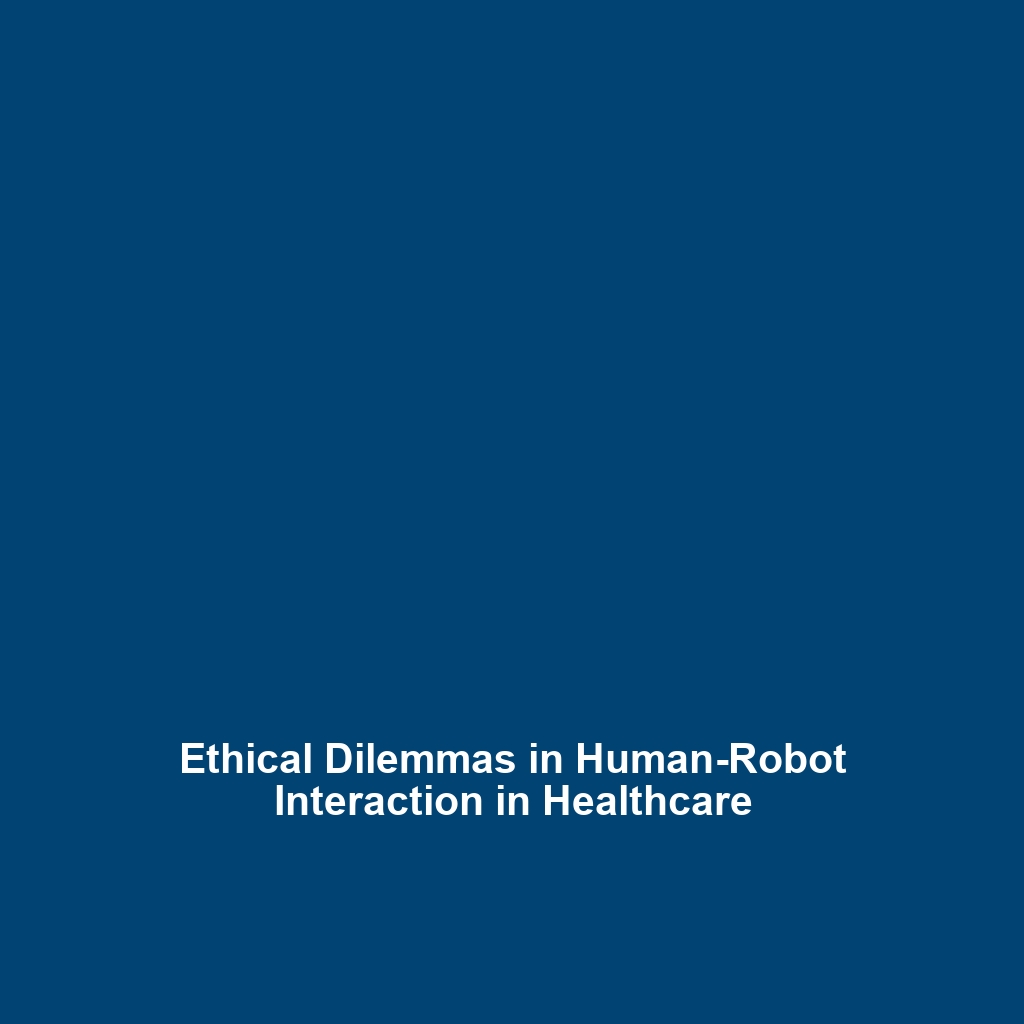Ethical Considerations in Human-Robot Interaction in Healthcare Settings
As the prevalence of autonomous robots in healthcare continues to rise, understanding the ethical considerations in human-robot interaction becomes increasingly important. These considerations encompass a range of issues including privacy, consent, and the emotional implications of robotic care. By engaging with these ethical dilemmas, healthcare providers can ensure that the integration of robots enhances patient safety and well-being while maintaining trust in medical practices.
Key Concepts
Within the realm of ethical considerations in human-robot interaction in healthcare settings, several key concepts emerge:
- Autonomy: Evaluating the extent to which robots can make independent care decisions without compromising human oversight.
- Accountability: Understanding who is responsible for the actions and decisions made by autonomous robots.
- Informed Consent: Ensuring patients or their families are fully aware and in agreement with the use of robots for care.
- Emotional Impact: Analyzing the psychological effects on patients interacting with robots, and addressing the potential for emotional attachment.
Applications and Real-World Uses
The implications of ethical considerations in human-robot interaction in healthcare settings play a crucial role in various real-world applications:
- Robotic Surgical Systems: Surgical robots assist doctors with precision, but ethical oversight is necessary to ensure safety and efficacy.
- Companion Robots: Robots designed to engage patients socially can improve mental health, but ethical considerations regarding emotional dependency must be addressed.
- Rehabilitation Robots: These devices help with physical therapy, highlighting the importance of consent for patient participation in robotic-assisted recovery.
Understanding how ethical considerations in human-robot interaction are utilized in the context of autonomous robots can lead to improvements in the quality of care provided in healthcare settings.
Current Challenges
Despite the potential benefits, several challenges hinder the effective application of ethical considerations in human-robot interaction in healthcare settings. Key issues include:
- Complexity of Ethical Guidelines: Crafting universally acceptable ethical guidelines that can adapt to diverse healthcare environments is challenging.
- Public Perception and Trust: Healthcare providers must navigate skepticism regarding robot capabilities and their impact on human care.
- Integration into Existing Systems: Incorporating robots into established healthcare practices without disrupting workflows poses logistical challenges.
Future Research and Innovations
As technology evolves, the future of ethical considerations in human-robot interaction in healthcare settings will likely see several innovations:
- Adaptive Learning Algorithms: Future robots may incorporate AI that learns from human interaction, improving their capacity to respond ethically in varied scenarios.
- Collaborative Robotics: Innovations may lead to robots that work more seamlessly alongside healthcare professionals, enhancing ethical care delivery.
- In-depth Ethical Training Programs: Developing comprehensive programs for healthcare workers on the ethical implications of robotic interactions will further enhance patient care.
Conclusion
In summary, ethical considerations in human-robot interaction in healthcare settings are vital in guiding the development and integration of autonomous robots in patient care. By addressing these concerns proactively, we can harness technological advancements while safeguarding patient rights and emotional welfare. For further insights, consider exploring our article on The Role of AI in Healthcare Ethics to deepen your understanding of this evolving field.
